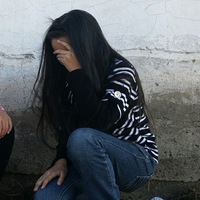
В чем сходство в опере и оперетты??!??!?!!!!!
 0
0
 0
0
Ответы на вопрос
 Внимание! Ответы на вопросы дают живые люди. Они могут содержать ошибочную информацию, заблуждения, а также ответы могут быть сгенерированы нейросетями. Будьте внимательны. Если вы уверены, что ответ неверный, нажмите кнопку "Пожаловаться" под ответом.
Внимание! Ответы на вопросы дают живые люди. Они могут содержать ошибочную информацию, заблуждения, а также ответы могут быть сгенерированы нейросетями. Будьте внимательны. Если вы уверены, что ответ неверный, нажмите кнопку "Пожаловаться" под ответом.

 0
0
 0
0

Similarities between Opera and Operetta
Opera and operetta are both forms of musical theater that incorporate singing, acting, and storytelling. While they share some similarities, there are also distinct differences between the two.
1. Musical Style: - Both opera and operetta feature vocal performances, but they differ in terms of musical style. - Opera is known for its grand and dramatic music, often accompanied by a full orchestra. It typically includes arias, recitatives, and ensembles. - Operetta, on the other hand, is characterized by lighter and more accessible music. It often incorporates elements of popular music, dance, and comedy.
2. Storytelling: - Both opera and operetta tell stories through music and lyrics, but the nature of the stories can differ. - Opera tends to focus on serious and tragic themes, often drawing inspiration from historical events, mythology, or literature. - Operetta, on the other hand, often tells lighthearted and comedic stories. It may include romantic plots, mistaken identities, and humorous situations.
3. Performance Style: - Opera and operetta also differ in terms of performance style. - Opera performances are typically more formal and serious, with elaborate sets, costumes, and staging. The focus is on the vocal performances and the emotional depth of the characters. - Operetta performances are often more relaxed and playful, with a greater emphasis on acting and comedic timing. The staging and costumes may be less elaborate, and the performances may incorporate dance and physical comedy.
4. Language: - Opera is traditionally performed in the language in which it was composed. For example, Italian operas are performed in Italian, German operas in German, and so on. - Operetta, on the other hand, is often translated and performed in the local language of the audience. This allows for a wider accessibility and understanding of the comedic elements and wordplay.
5. Historical Context: - Opera has a long history dating back several centuries, with composers like Mozart, Verdi, and Wagner contributing to its development. - Operetta emerged in the 19th century as a lighter and more accessible form of musical theater. It gained popularity in Europe and later in the United States.
In summary, while both opera and operetta are forms of musical theater that incorporate singing and storytelling, they differ in terms of musical style, storytelling, performance style, language, and historical context. Opera tends to be more serious and grand, while operetta is known for its lighter and comedic nature.
 0
0
 0
0
Топ вопросов за вчера в категории Музыка
Последние заданные вопросы в категории Музыка
-
Математика
-
Литература
-
Алгебра
-
Русский язык
-
Геометрия
-
Английский язык
-
Химия
-
Физика
-
Биология
-
Другие предметы
-
История
-
Обществознание
-
Окружающий мир
-
География
-
Українська мова
-
Информатика
-
Українська література
-
Қазақ тiлi
-
Экономика
-
Музыка
-
Право
-
Беларуская мова
-
Французский язык
-
Немецкий язык
-
МХК
-
ОБЖ
-
Психология
-
Физкультура и спорт
-
Астрономия
-
Кыргыз тили
-
Оʻzbek tili





















